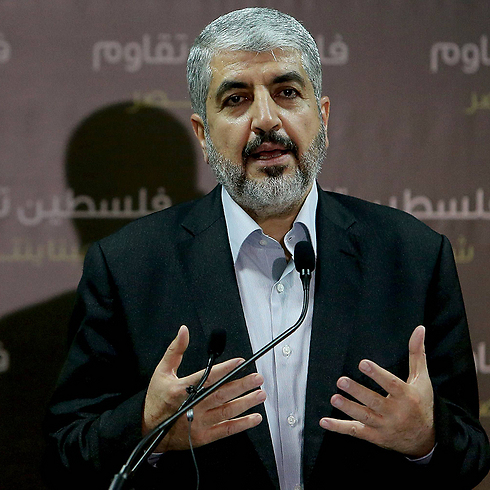A senior Fatah official claimed in a conversation with the Al-Hayat newspaper that Qatar recently threatened Hamas' political bureau chief Khaled Mashal that it would expel him if Hamas accepts the Egyptian ceasefire truce deal in its current format.
The same source also stated that Hamas asked Egypt that Qatar assist in ending the conflict between Israel and Hamas, adding that Cairo should invite Qatar's Foreign Minister or Qatar's head of Intelligence to take part in the indirect negotiations.
Egypt, according to the same source, refused outright to consider the proposal, conditioning its implementation on Qatar's apology over the policy it adopted since the overthrow of former Egyptian President Mohamed Morsi.
In addition, Qais Abu Laila, a senior leader from the Democratic Front for the Liberation of Palestine who was in Cairo, said Wednesday morning that the Palestinians filed a document on Tuesday agreeing to a two-stage proposal.
The plan includes the lifting of the siege in its first stage, opening the crossings and reconstructing the Gaza Strip without restrictions or conditions, and postponing the discussions on more complex issues such as an airport and seaport by a month.
According to Abu Laila, the two sides failed to reach an agreement during the last round of talks due to Israel's insistence on the disarmament of the factions and the limiting of their weapon build-up capabilities.
Giving an example of a difference of opinions that thwarted the agreement, he claimed that Israel insisted that the opening of the Gaza border crossings would be done "in coordination with the Palestinian Authority." According to the delegate, "that would mean that Israel would be able to veto the decision whenever it wants."
















